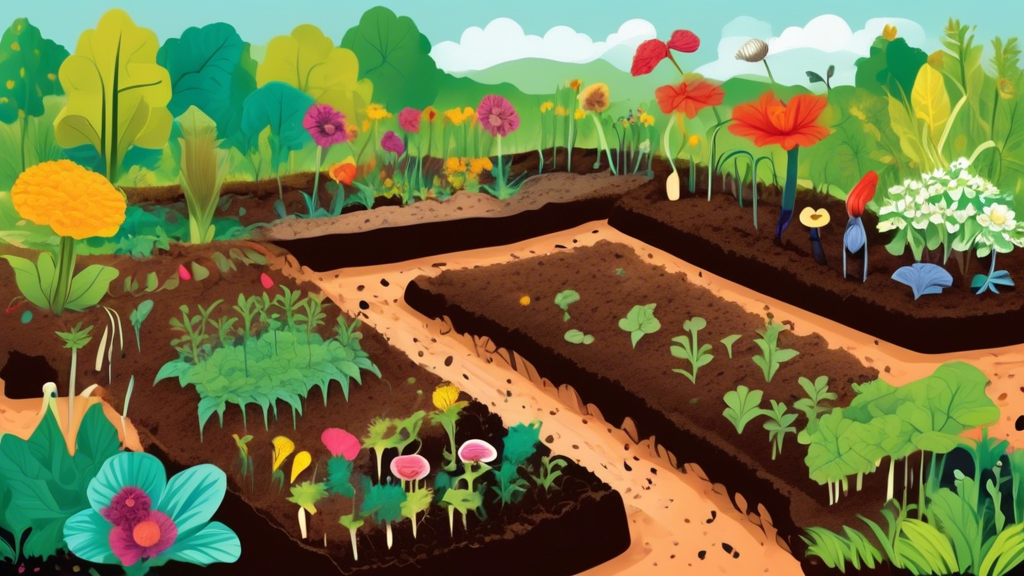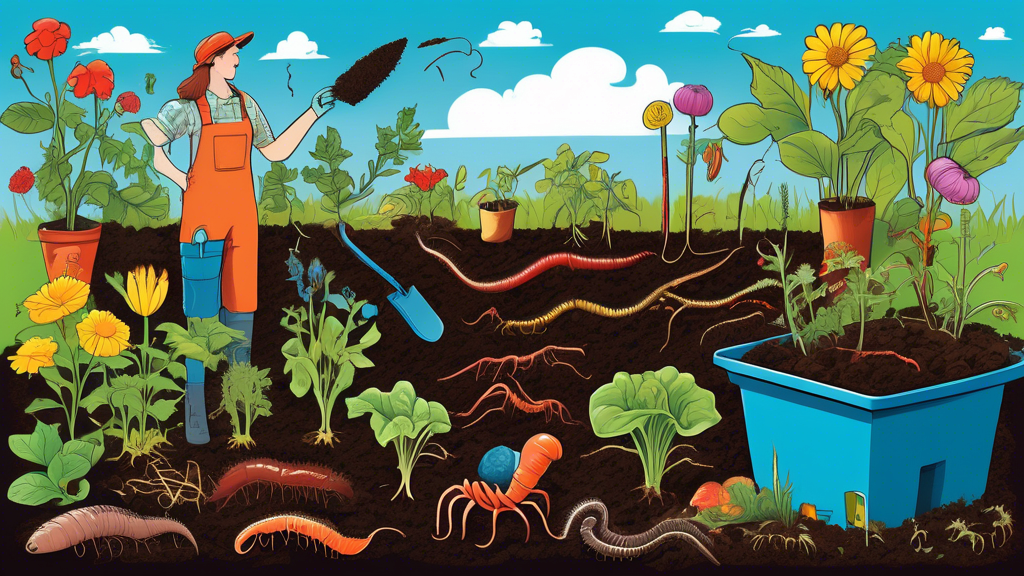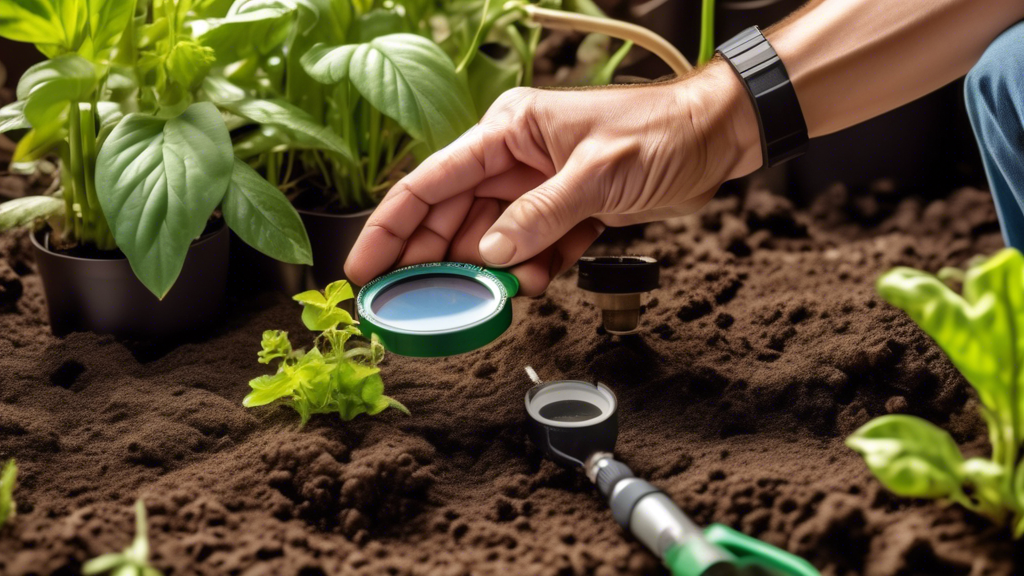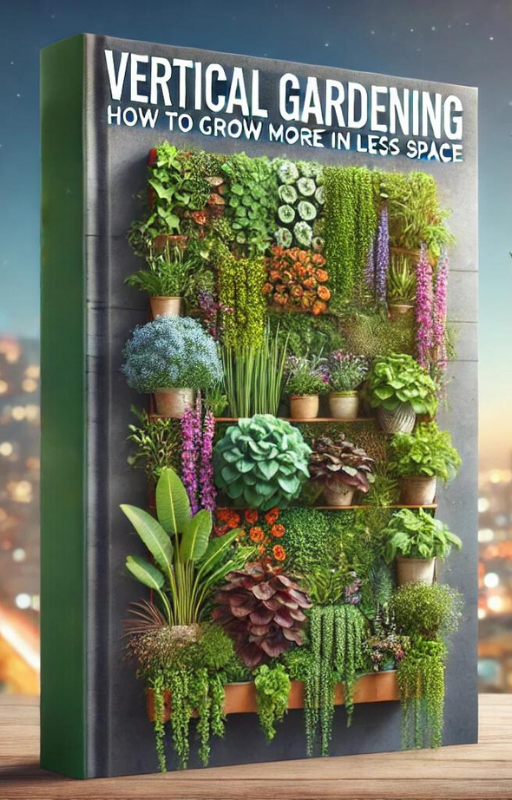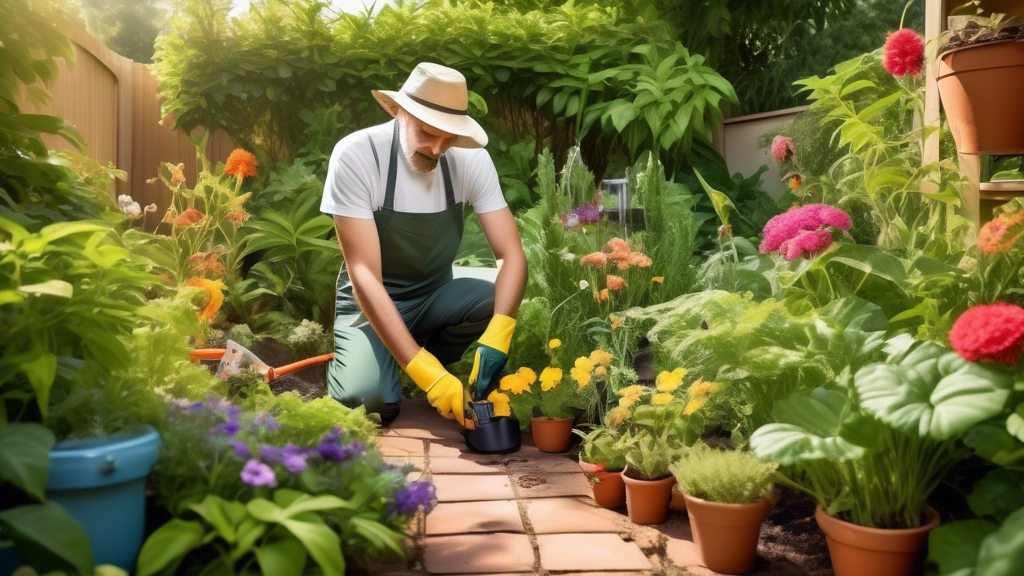
Understanding the Small Garden Pest Challenge
Common Pests in Compact Spaces
A quick, scannable list of the most frequent offenders in small gardens.
- Aphids
- Slugs and Snails
- Cabbage Worms
- Squash Bugs
- Spider Mites
Top Frustrations for Small Gardeners
- Pest Damage is Highly Visible and Impactful: A few bugs can decimate a small harvest, making the problem feel immediate and severe.
- Limited Space Makes Plants More Vulnerable: Pests can spread from plant to plant with alarming speed in dense plantings.
- Concern Over Chemical Use: Worry about contaminating your home-grown food and harming the delicate ecosystem of beneficial insects in a confined area.
Foundational Best Practices for Managing Pests in Small Gardens
Start with Healthy Soil
Strong, vigorous plants grown in nutrient-rich, well-balanced soil are naturally more resilient and better able to withstand pest pressure.
Embrace Plant Diversity (Companion Planting)
Interplanting herbs and flowers among your vegetables can naturally confuse and repel pests. For example, basil planted near tomatoes can help deter tomato hornworms.
Encourage a Balanced Ecosystem
Your goal isn’t a sterile garden, but a balanced one. Attracting beneficial insects like ladybugs, lacewings, and parasitic wasps provides natural pest control.
Proactive Pest Prevention Strategies
The Power of Regular Inspection
Making a daily or weekly “patrol” of your garden a non-negotiable habit is the single best way to catch problems when they are small and manageable.
Physical Barriers and Traps
Creating physical obstacles is a highly effective, non-toxic first line of defense.
Barrier and Trap Comparison
| Method | Best For | Pros | Cons |
|---|---|---|---|
| Row Covers | Flying insects like cabbage moths and squash bugs | Highly effective physical barrier; allows light and water through | Can prevent pollination; may need to be removed for weeding |
| Copper Tape | Slugs and Snails | Long-lasting; creates a shocking barrier they won’t cross | Can be expensive; only protects the immediate area it surrounds |
DIY Traps: A shallow dish sunk into the soil and filled with beer makes an excellent trap for slugs. Yellow sticky cards can be placed near plants to catch flying pests like whiteflies and fungus gnats.
Proper Watering and Airflow
Overwatering and crowded plants create a damp, humid environment that is a haven for pests like slugs and fungal diseases. Water the soil, not the leaves, and ensure proper spacing.
Reactive & Organic Control Methods
The “Remove by Hand” Method
For larger pests like Japanese beetles, hornworms, and squash bugs, physically picking them off and dropping them into a bucket of soapy water is immediate and highly effective.
Homemade and Natural Sprays
When hand-picking isn’t enough, these solutions can help tackle infestations.
Natural Spray Comparison
| Spray Type | How It Works | Best For | Application Tips |
|---|---|---|---|
| Insecticidal Soap Spray | Breaks down the protective outer coating of soft-bodied insects, causing dehydration. | Aphids, spider mites, whiteflies | Spray directly on the pests; ensure good coverage. Test on a leaf first. Avoid spraying in full sun. |
| Neem Oil | Acts as an antifeedant and hormone disruptor, slowing pest reproduction and growth. | A broad spectrum of pests including beetles, mites, and aphids; also has fungicidal properties. | Mix with water and a mild soap as an emulsifier. Spray in the early morning or evening to prevent leaf burn. |
Introducing Biological Controls
For persistent soil-borne pests like grubs, you can introduce beneficial nematodes—microscopic worms that seek out and kill pest larvae—by watering them into the soil.
A Unique Strategy: The “Trap Crop” Method for Small Spaces
What is a Trap Crop?
A trap crop is a sacrificial plant that is strategically placed because it is *more* attractive to a specific pest than your prized vegetables. The pests will congregate on the trap crop, making them easier to manage and drawing them away from your main harvest.
How to Implement it in a Tiny Garden
You don’t need a large field to use this method. Plant just one or two trap crop plants in a container or at the edge of your garden bed.
- For Aphids: Plant Nasturtiums to lure aphids away from your tomatoes and beans.
- For Squash Bugs: Plant a Blue Hubbard squash to attract squash bugs away from your zucchini and pumpkins.
The key is to monitor the trap crop closely. Once it becomes heavily infested, you can simply pull the entire plant and dispose of it (in a sealed bag, not the compost), taking a large portion of the pest population with it.
Common Mistakes to Avoid
Reaching for the Strongest Chemical First
Broad-spectrum pesticides will kill the beneficial insects that are working for you, disrupting the garden’s natural balance and often leading to a worse pest rebound.
Ignoring the Undersides of Leaves
This is where most pests, like aphids and whiteflies, lay their eggs and congregate. A thorough inspection means looking at every part of the plant.
Planting the Same Thing in the Same Spot Year After Year
Pests and diseases that target a specific plant family can build up in the soil. Rotating your crops, even in a small space, helps break this cycle.
Frequently Asked Questions (FAQs)
What is the single most important thing I can do to prevent pests?
Answer: Consistent monitoring. Catching a problem when you only see a few pests makes it easy to manage with simple methods like hand-picking or a spray of water. An infestation is much harder to control.
Are chemical pesticides ever okay in a vegetable garden?
Answer: They should be an absolute last resort for a severe, out-of-control infestation. If you must, always choose the most targeted, garden-safe option available and follow the label instructions meticulously. The goal of these best practices for managing pests in small gardens is to build a resilient system where chemicals are never needed.
I see bugs, but how do I know if they are good or bad?
Answer: When in doubt, take a photo and use a gardening app or online guide for identification. Learn to recognize key beneficial insects like ladybugs (and their larvae), ground beetles, and praying mantises. These are your allies and should be protected.
My plants have holes in the leaves. Should I panic?
Answer: Not necessarily. A small amount of cosmetic damage is normal in a healthy, living ecosystem and won’t significantly impact your harvest. Focus on controlling the pest population to prevent severe damage, not on achieving picture-perfect, unblemished leaves.


